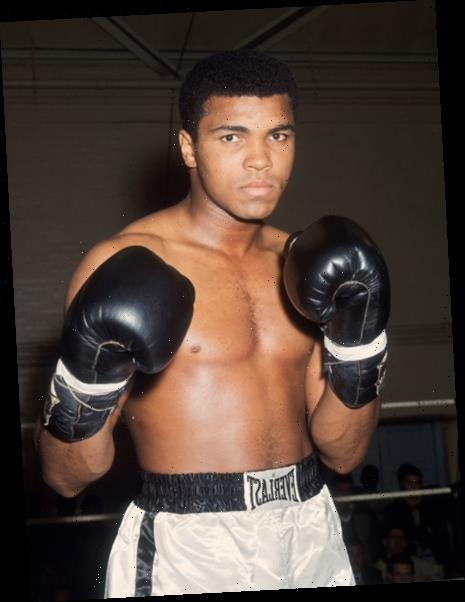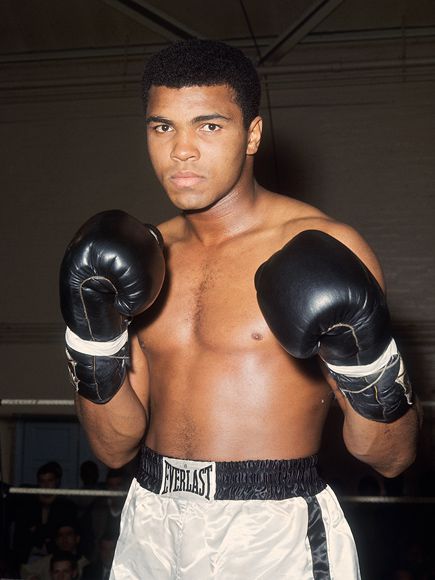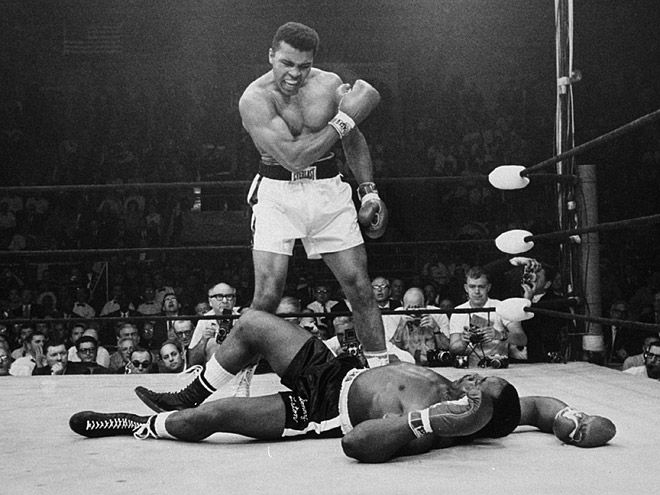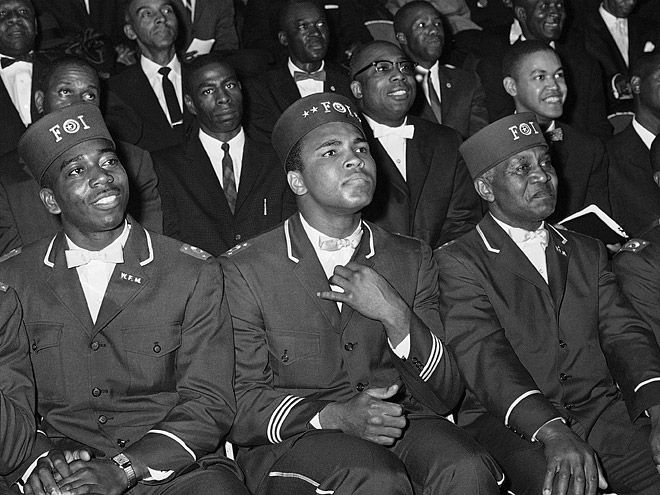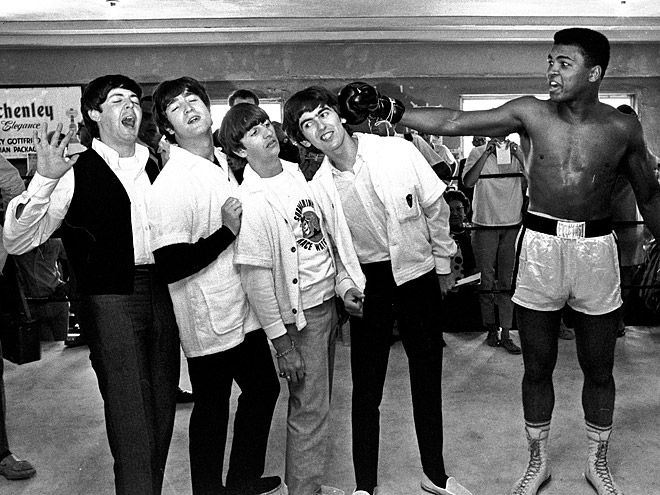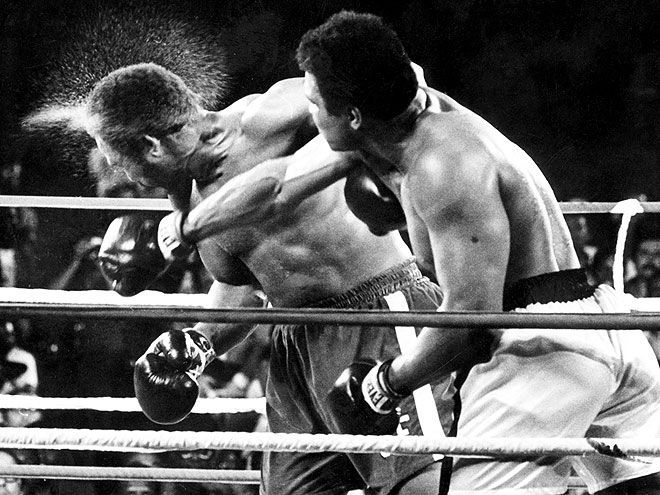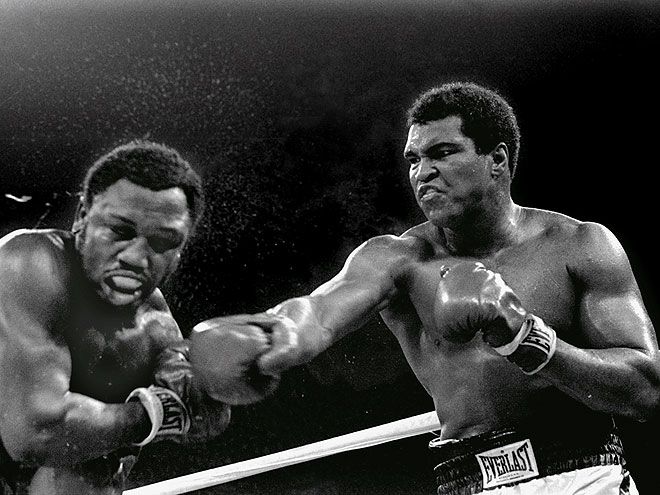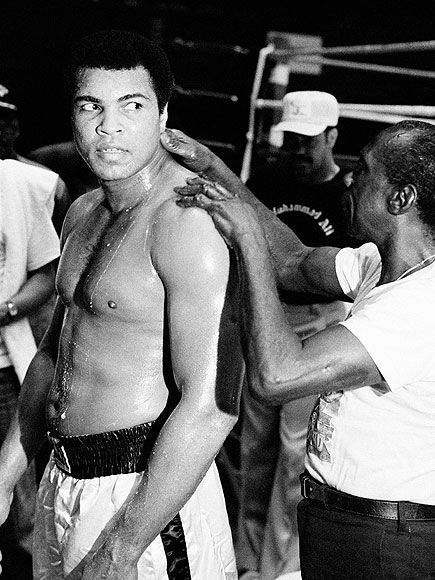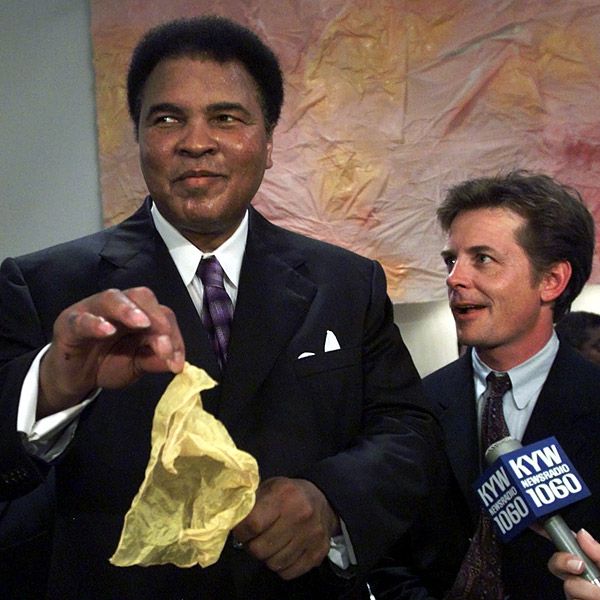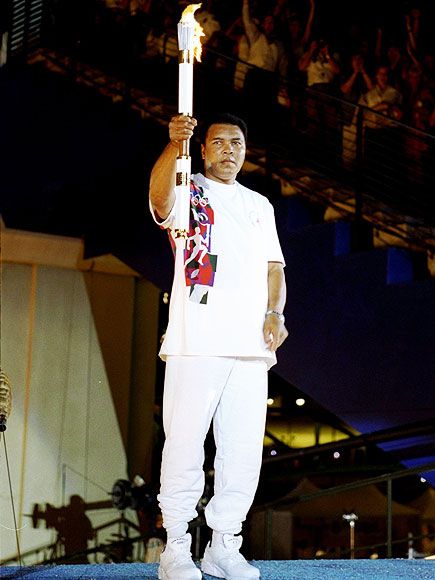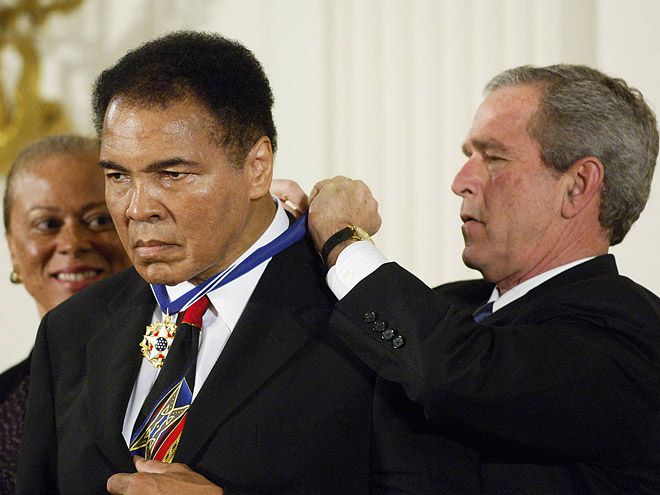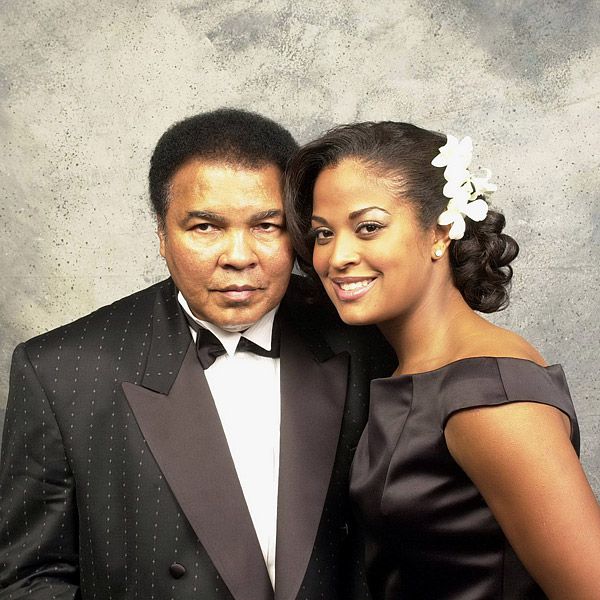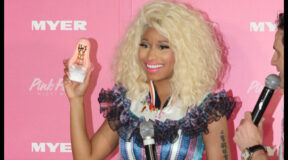EARLY SUCCESS
Born Cassius Clay, Jr., on January 17, 1942, in Louisville, Kentucky, the future sports legend started training as a boxer at age 12. Winning came quickly to the youngster, and he soon won his first amateur bout. He admitted years later that throughout his career, “I hated every minute of training, but I said, ‘Don’t quit. Suffer now and live the rest of your life as a champion.'”
1of 14
TAKING HOME THE GOLD
The 1959 National Golden Gloves champ followed that victory by winning a gold medal at the Rome Summer Olympics in 1960 when he was just 18. It was the start of one of the most heralded careers in American sports. His sometimes profound, sometimes pompous quips – “I am the greatest. I said that even before I knew I was.” – became as famous as his boxing skills.
2of 14
WINNING STREAK
In the 1960s, the fighter with the fancy footwork and powerful hooks won all of his matches, and most of them were knockouts. After besting fellow American Sonny Liston in 1964, he was declared the heavyweight champion of the world. “The crowd did not dream when they laid down their money / that they would see a total eclipse of the Sonny,” he wrote in one of his frequent, self-aggrandizing poems.
3of 14
SPIRITUAL CONVERSION
Two days after his Liston victory, the 22-year-old champ joined the Nation of Islam and changed his name to Muhammad Ali (meaning “worthy of praise”). When he was drafted into the Army in 1966, Ali refused to join the war effort in Vietnam, citing his Muslim beliefs. During a trial on the matter the next year, he was found guilty, but the U.S. Supreme Court eventually reversed his conviction. The boxing association, however, stripped the sports hero of his title and suspended him for three-and-a-half years.
4of 14
THE FAB FIVE
In a 1964 publicity shot, Ali faked a punch with the Beatles. He had a knack for self-promotion and agreed to pose with the band after Sonny Liston turned them down. Of his self-confidence, he once reasoned, “It’s not bragging if you can back it up.”
5of 14
MAKING A COMEBACK
Despite his lengthy absence from the ring, Ali beat Jerry Quarry in three rounds during his 1970 comeback match in Atlanta. Then in 1971, he joined another undefeated heavyweight, Joe Frazier, in what was billed the “Fight of the Century” at New York City’s Madison Square Garden. After 15 rounds, Frazier was declared the winner by unanimous decision.
6of 14
JUNGLE JABS
In the legendary match called the “Rumble in the Jungle,” which took place in Zaire in 1974, Ali fought reigning heavyweight champion George Foreman. Though he was the underdog, Ali delivered a knockout punch in the eighth round, winning the match. “Champions aren’t made in gyms,” he once mused. “Champions are made from something they have deep inside them – a desire, a dream, a vision.”
7of 14
YOU’VE GOT A FRIEND
Ali, who was married four times and had nine children, including daughter Laila Ali, found a lifelong ally in sportscaster Howard Cosell, who supported the superstar during his “conscientious objector” trial. The two had an easy camaraderie that played out well in front of the cameras.
8of 14
AS TOUGH AS IT GETS
In 1975’s “Thrilla in Manila” bout in the Philippines, Ali won but not before he and Joe Frazier went more than 14 grueling rounds. “It was like death,” Ali said. “Closest thing to dying that I know of.”
9of 14
THIRD TIME’S THE CHARM
When he won a rematch against Leon Spinks in 1978, Ali, 36, became the first man to win the World Heavyweight Champion title three times; he remains the only boxer with that distinction today.
10of 14
RETIRING FROM THE RING
By 1981, Ali’s boxing career was over, and he went from pugilist to philanthropist, focusing on the values he promoted outside the ring, such as racial justice and equality. After announcing he had Parkinson’s disease in 1984, Ali became involved in fund-raising; in 1997, he established the Muhammad Ali Parkinson Center in Phoenix. Here, he hangs with Michael J. Fox at a 2000 event in Philadelphia for Fox’s own Parkinson’s foundation.
11of 14
LIGHT OF THE WORLD
The one-time Olympian, who was still one of the most recognized and admired sports figures in the world, surprised viewers when he stepped out of the shadows to light the Olympic torch during the 1996 Summer Games in Atlanta.
12of 14
SERVICE MINDED
For his considerable humanitarian work, Ali was named a Messenger of Peace in 1998 by United Nations Secretary-General Kofi Annan and awarded the Presidential Medal of Freedom from George W. Bush in 2005. “Service to others is the rent you pay for your room here on earth,” said Ali; in 2005, he also opened the Muhammad Ali Center, a museum and cultural space in Louisville, which he called “a place that would inspire people to be the best that they could be at whatever they chose to do, and to encourage them to be respectful of one another.”
13of 14
IN PEACE
Ali lived out his final years under the radar, making rare public appearances (like a 2007 set visit to Dancing with the Stars to watch daughter Laila, pictured) and even rarer public statements, speaking out in 2015 when Donald Trump called to ban Muslims from entering the U.S. Hospitalized in late 2014 and early 2015, he again received medical care for a respiratory issue in June of 2016, shortly before his death on June 3 at the age of 74.
14of 14
Source: Read Full Article
